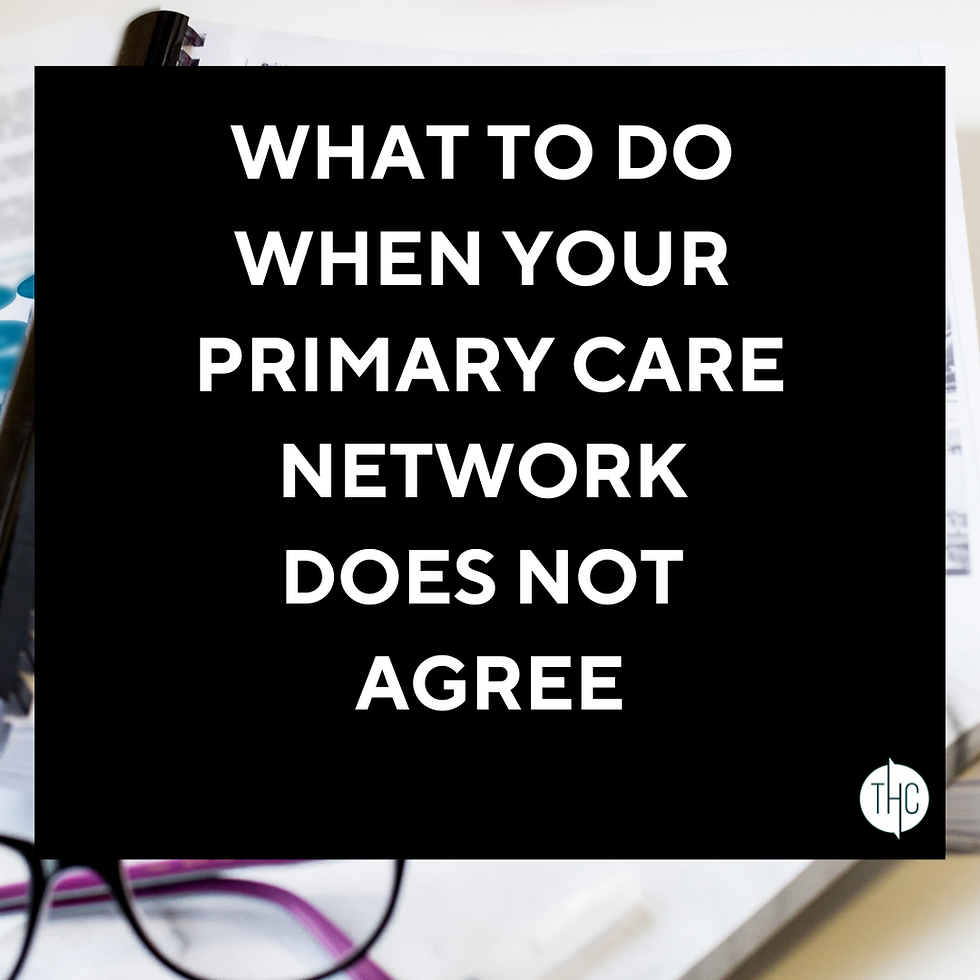What to do when your primary care network does not agree
- Mar 20, 2025
- 3 min read
At THC Primary Care, we provide resources for primary care network leaders, and this week's blog is specifically for those who may be experiencing conflict or a lack of decision-making in their primary care network.
Navigating your Primary Care Network can be tricky, especially when your practices don't agree on a course of action.
Moments like this can feel extremely challenging for all parties involved, and quite commonly, in our experience, one party can feel that they are bending over backwards to accommodate another, whilst the other party feels that they are not being heard.
I wish this blog could provide you with a perfect checklist to follow (which would result in you never having to go through this), but this is sadly impossible.
What we can do though is provide you with a list of considerations to help you proactively minimise and address any tensions.
Before we start, if you find yourself in the midst of conflict…..
Don’t rush in to fix it. This needs to be handled carefully and sensitively but also, don’t ignore it.
Acknowledge the situation. Only you can decide how formal the initial conversation needs to be but our first instinct is always to pick up the phone.
Don’t gossip about it.
Understand that this isn’t about you. Don’t make it personal.
Remember, no one wants to be in this situation. Conflict can be extremely stressful and can take a toll on your mental and physical health.
We have also created the PCN guide to decision-making for members of the PCN Members Club. Below, you will find a decision-making framework to help move things forward.
Let's jump in!

Want to read more?
Subscribe to thcprimarycare.co.uk to keep reading this exclusive post.





.png)

.png)

